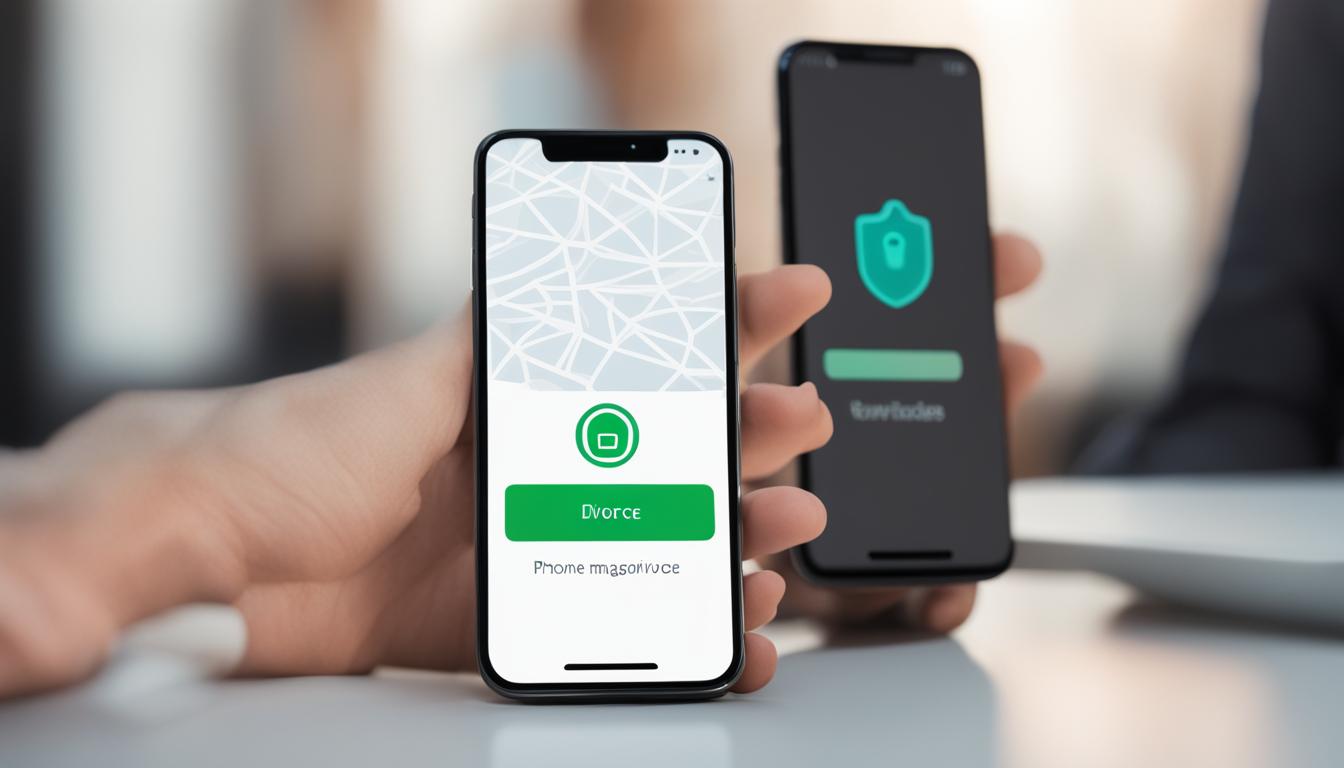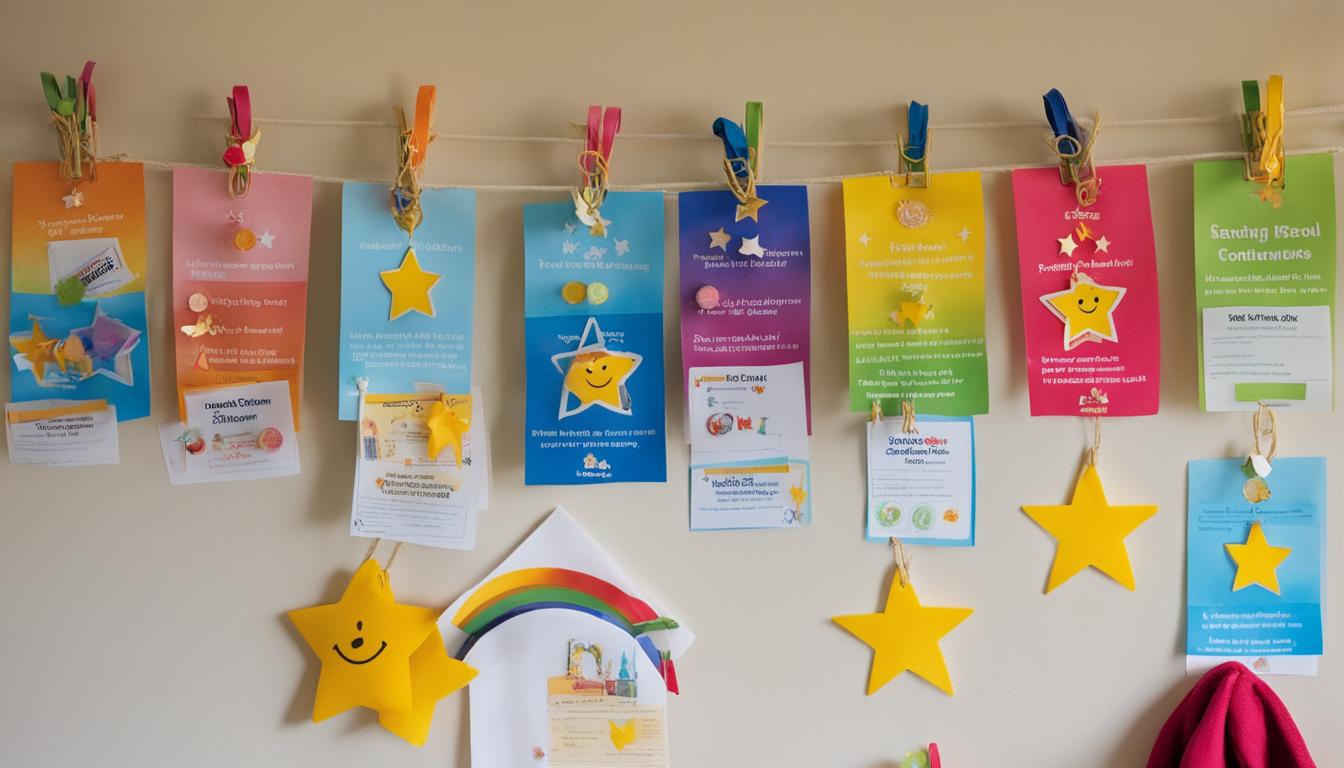Divorce Over Text? The Pros and Cons of Technology in Parenting
When you navigate the choppy waters of divorce and custody, your digital world is no longer just your haven of emojis and instant communication—it’s a potential legal minefield. In the era of digital divorce, understanding the interplay between technology in parenting and online privacy in divorce is imperative.
Dallas-based family law attorney Abby Gregory highlights the nuances of shared digital devices and accounts in the midst of divorce proceedings. The convenience of technology can quickly turn into a pitfall, with devices potentially harboring incriminating evidence that may affect your future. As such, secure text messaging and cautious management of digital footprints become crucial to safeguarding your interests.
Dual usage of phones and cloud services, which simplify life during marriage, can become complex during divorce. Texts, emails, and social media once shared in trust can be subject to scrutiny. Initiating divorce communication technology may start with your pocket device, yet that same proximity can put your privacy at risk.
With Gregory’s insights, you’re urged to adopt strategies that protect your personal data without crossing legal boundaries. As you ponder parenting during divorce, consider how the seemingly benign ‘tech shared life’ can morph into an evidentiary battlefield.
Key Takeaways
- Shared technology can become a vulnerability in divorce, highlighting the importance of using divorce communication technology wisely.
- Proper management of shared digital assets and accounts is key to maintaining online privacy in divorce.
- Securing text messaging and digital communications can protect against the use of personal information in custody disputes.
- Retaining privacy rights without destroying shared records is a delicate but necessary balance in digital divorce.
- Abby Gregory’s recommendations emphasize the significance of technology in parenting, specifically during the transformative process of divorce.
Understanding the Digital Landscape in Modern Parenting
Embarking on the journey of parenting in the digital age can be akin to navigating a vast and uncharted digital cosmos. It’s a place where the granular details of technology intersect with the broad spectrum of child development. A place where online safety for kids is as essential as the food they eat. As digital advancements continue to evolve at a breakneck pace, effective digital parenting tips have become the compass by which we can direct healthy interactions between our families and the digital world around us.
The landscape is a mosaic of innovative tools that can reinforce familial bonds and developmental milestones. Technology and child development go hand-in-hand in today’s world, where mobile communication apps act as lifelines of connectivity between busy parents and their children. In the same vein, planning apps serve as the essential glue helping to coordinate family logistics, while home security systems stand as silent sentinels, safeguarding our loved ones.
Yet, with these advancements, we must remain vigilant. Not all digital footprints lead to a safe haven. As we integrate technology into our parenting toolkit, the immersion of screens in our daily lives poses a subtle riddle. It calls into question the quality of interactions we share with our kin, urging us to scrutinize the content and context our children are exposed to. In essence, the tablet and television are no longer simply gateways to information but are gatekeepers to wellbeing—a crucial facet to consider.
You are the pilots of your family’s digital airplane, and it is your responsibility to ensure a safe and harmonious flight.
Accordingly, let’s examine the contributions and challenges brought forth by technology on the family dynamic, as data doesn’t merely inform us; it shapes the lives of our children.
| Benefits of Technology | Challenges of Technology |
|---|---|
| Enhances communication across distances | Can reduce quality face-to-face family time |
| Facilitates organization and planning | May encourage a sedentary lifestyle among kids |
| Improves home security | Potentially impacts children’s outdoor activity levels |
| Engages parents in school activities | Can set inconsistent examples for children by parents |
| Creates shared family experiences online | May lead to addiction and its consequent family rifts |
Redressing the balance by implementing informed digital parenting tips and proactive strategies will mitigate adverse effects, such as the erosion of the cherished tradition of outdoor play, displacement of wholesome eating with the ease of calling for food deliveries, or the inclination to replace genuine conversation with a string of text messages.
- Carve out specific tech-free time that fosters engagement and encourages outdoor activities.
- Adopt apps and services that promote online safety for kids, ensuring they explore the digital world within the parameters of their age and maturity.
- Model the behavior you wish to see in your children, leading by example when it comes to technology usage.
- Maintain open lines of communication about the content consumed and the feelings it evokes.
Remember, the key to mastering the art of modern parenting lies not in the retreat from the digital landscape but in the careful nurturing of the digital natives we’re raising. While the pixels of screens glow, let us instill within our children enough light to discern the path that technology illumines, ensuring it leads them toward growth, knowledge, and security.
Navigating Child Custody and Privacy during a Tech-Savvy Divorce
In the throes of a divorce, particularly when child custody is on the line, the matter of protecting online privacy during divorce is a pressing concern. Technology has seeped into every aspect of our lives, including our relationships and, consequently, the dissolution thereof. Thus, ensuring that your digital life does not compromise your legal stand can be as paramount as securing the best legal representation.
Securing Digital Accounts and Personal Devices
To safeguard against the possible legal repercussions stemming from the technology you use, you must take deliberate actions to secure your digital accounts and personal devices. Family law attorney Abby Gregory recommends a series of meticulous steps designed to prevent your soon-to-be ex-spouse from accessing your personal information, which can be used against you in court:
- Change passwords on all individual accounts to prevent unauthorized access.
- Ensure you log out of all social media and email accounts on shared devices.
- Create new private email accounts for correspondence related to the divorce.
- Disable location services on your devices to prevent tracking.
- Set up a separate phone plan to maintain secure messaging in divorce.
By taking these precautions, you take control of your digital presence, ensuring that your personal communications, especially those related to child custody and the divorce process, remain secure and are not used as leverage against you.

Legal Implications of Shared Digital Content in Divorce Proceedings
The digital content shared between spouses during a marriage becomes a highly scrutinized commodity in divorce proceedings. Below you’ll find a table that outlines the do’s and don’ts of handling digital content to avoid legal issues and to protect yourself during a divorce:
| Do: | Don’t: |
|---|---|
| Open new accounts for personal communication. | Destroy or delete shared digital records. |
| Keep records of your digital communications on non-shared accounts. | Underestimate the legality of shared accounts issues. |
| Speak with a divorce attorney to understand the nuances of digital content legality. | Forget to disentangle your digital life from your spouse’s before taking legal action. |
| Preserve evidence while maintaining your privacy rights. | Ignore the legal consequences of technology use in divorce cases. |
The legal landscape regarding digital content divorce legality and shared accounts legal issues is complex and continuously evolving. It is crucial to anticipate how online content can play a role in your divorce case and make educated decisions on how to handle technology amidst legal proceedings. Discuss with a knowledgeable attorney who can provide guidance specific to your situation—navigating these waters is not a solo endeavor.
Responsible management of your digital profiles and accounts can make a substantial difference in the outcome of your divorce and child custody case.
Lastly, it’s critical to remember that while securing your digital life is an integral part of the divorce process, it should be done without compromising your integrity by unlawfully tampering with shared records that pertain to the marriage. This balance between safeguarding personal information and respecting the legality of shared digital content ensures you abide by the law while protecting your interests.
The Impact of Technology on Family Dynamics and Relationships
As we embrace the rapid tech advancements in family communication, it is evident that family relationship technology has been a double-edged sword, creating pathways for enhanced interaction while also presenting new challenges in maintaining traditional family connections. Let’s delve into how the very tools designed for communication are reshaping the framework within which family bonds are nurtured or strained in this internet era.
Strengthening Bonds: Communication Tech That Brings Families Closer
There’s no denying the fact that communication technology bonding has transformed familial interactions. The best tech for parents and children alike is often the simplest. Devices that fit into our pockets are enabling constant connectivity. From instant messaging to seamless video calls, technology bridges gaps caused by busy schedules and distances. Shared calendars and digital reminders aid in synchronizing our daily lives, ensuring that everyone is on the same page, literally and figuratively.

Social media platforms have turned grandparents, cousins, and siblings into avid photographers, sharing and celebrating each moment together, irrespective of the miles in between. Meanwhile, educational apps bring a wealth of knowledge to the fingertips of curious youngsters, allowing parents to guide their child’s learning journey from anywhere at any time.
Here’s a look at how technology facilitates more profound connections:
- Mobile phones keep family members just a call or text away.
- Video calling apps like Skype and Zoom allow for virtual face-to-face conversations.
- Party-planning apps help organize family events, making invitations and coordination effortless.
- Group messaging apps provide a shared space to stay updated and support each other.
The Downside: When Technology Drives a Wedge in Family Ties
However, the infiltration of devices into every moment has also led to a family divide technology has unwittingly imposed. The digital divide in families is characterized by reduced face-to-face engagement, as screens demand attention over family members during shared meals or quality time. This phenomenon raises concerns about technology affecting family relationships, shaping a dynamic where virtual conversations overshadow real-time, heartfelt interactions.
Are we merely co-existing with technology, or is technology dictating the terms of our coexistence?
The effects of this divide are palpable:
- Parenting in the internet era often means competing with gadgets for a child’s attention.
- Children and teens may prefer the company of their screens rather than outdoor play, impacting their health and social skills.
- Parents are tasked with setting the right example, but often fall prey to the same screen-centrism they advise against.
- Excessive online interactions can expose vulnerabilities, leading to conflicts and emotional distress.
To illustrate this dichotomy, consider the following comparative analysis:
| Technology’s Influence | Positive Impacts | Negative Impacts |
|---|---|---|
| Communication | Instant connection regardless of distance | Reduction in quality family conversations |
| Entertainment | Access to diverse content strengthening knowledge | Passive consumption reduces active family engagement |
| Security | Increased safety through modern home systems | Overreliance might reduce vigilance and personal interactions |
| Education | Enriched learning experience from vast resources online | Distraction from excessive device use negatively affects academic performance |
| Lifestyle | Enhanced comfort and convenience | Promotion of sedentary habits impacting physical health |
In conclusion, as we navigate the evolving landscape of technology affecting family relationships, our approach must strike a balance. By blending the positive aspects of technology with conscious efforts to engage personally and meaningfully, families can foster strengthened bonds that withstand the test of tech-induced fragmentation. Mindfulness in our digital interactions promises to keep the essence of family ties intact in the internet era.
Choosing and Using Parenting Apps for Effective Co-parenting Post-Divorce
Embarking on effective post-divorce parenting can present a unique set of challenges, particularly when ensuring a nurturing environment for your children. Enter the domain of co-parenting technology—an ensemble of tools designed to traverse the complexities of shared parenting. As you sift through options, you’ll come across various parenting apps, tailored to facilitate harmonious collaboration between divorced parents.
When deployed efficiently, collaborative parenting apps serve as invaluable parenting communication tools, easing the flow of information and mitigating potential conflicts. These applications offer an array of functions—from central calendars that keep both parents in sync with their children’s schedules to secure platforms for storing important documents like medical records and school reports. Moreover, their messaging features stand out for their ability to show not only when a message is sent but also when it’s read, significantly curtailing the ambiguity that often leads to disputes. Some even go further, suggesting kinder, less confrontational alternative wording for more sensitive communications.
In harnessing the full potential of co-parenting technology, it’s essential both you and your ex-partner engage with the app consistently. Commit to input all relevant details, from soccer matches to parent-teacher conferences, and use it solely with your children’s best interests at heart. With the right parenting app, post-divorce parenting can transform from a daunting task to a streamlined and stress-free process, ensuring your children’s transitional experience is as comfortable and supportive as possible.
FAQ
How can technology affect parenting during a divorce?
Technology can have a significant impact on parenting during a divorce by providing platforms for secure text messaging and communication, which can facilitate or complicate co-parenting and custody discussions. However, it’s crucial to ensure online privacy and be aware of the legal ramifications of sharing and managing digital content throughout the divorce process.
What are the benefits and challenges of parenting in the digital age?
The digital age offers parents tools for better communication, educational resources, and the ability to monitor their children’s online safety. However, challenges arise in managing screen time, maintaining online safety for kids, and navigating the potential impacts on technology and child development.
What steps should be taken to secure digital accounts and personal devices during a divorce?
During divorce, securing your digital presence involves changing passwords, creating new private email accounts, logging out of shared devices, disabling location services, establishing separate phone plans, and ensuring your personal communications remain private.
What legal issues should be considered concerning shared digital content in divorce proceedings?
In divorce proceedings, it’s illegal to destroy or alter shared digital content like messages, emails, or online documents that could serve as evidence. However, you can and should protect your online privacy for personal, non-shared accounts. It’s recommended to consult with a family law attorney to understand your rights and responsibilities fully.
How can technology help strengthen family bonds?
Technology can help strengthen family bonds by facilitating constant contact through mobile phones, social media, and video calling, and by helping family members stay involved in each other’s lives despite physical distances. It can also support shared experiences and enhance home security and engagement in school activities.
What are the downsides of technology when it comes to family relationships?
Technology can create a digital divide in families, detracting from quality time together, and leading to less face-to-face interaction. Over-reliance on screens can lead to sedentary lifestyles and unhealthy habits, potentially affecting children’s professional performance and leading to examples of parental inconsistency. Furthermore, technology can contribute to issues such as infidelity, which may lead to divorce.
What features should parents look for in co-parenting apps post-divorce?
After a divorce, co-parenting apps should provide features that facilitate communication, manage schedules, and organize shared documents. Look for apps with central calendars, the capability to store and share important documents, messaging systems with read receipts, and the potential for positive dialogue suggestions to maintain a respectful co-parenting relationship.
How can co-parenting technology improve post-divorce parenting?
Co-parenting technology can greatly aid post-divorce parenting by simplifying communication, reducing potential conflicts, and ensuring that both parents are on the same page. It provides a clear record of agreements and shared commitments, making it easier to navigate the complexities of collaborative parenting and focus on the well-being of the children.
Source Links
- https://www.connatserfamilylaw.com/blog/2022/july/how-to-avoid-the-pitfalls-of-technology-during-d/
- https://www.linkedin.com/pulse/pros-cons-technology-family-life-richa-aggarwal-richa-aggarwal-
- https://www.forbes.com/sites/frawleypollock/2020/03/05/how-co-parenting-apps-can-make-family-life-easier/?sh=266080802caa










